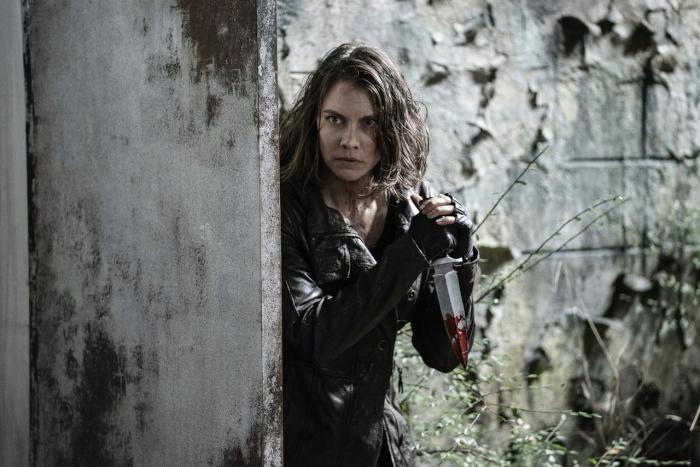By Dustin Rowles | TV | October 3, 2022

For those who don’t follow such things, Robert Kirkman abruptly ended The Walking Dead comics back in June of 2019 after 193 issues. This came as a surprise to fans of the comics mostly because — for years — Kirkman had insisted that he could continue writing them forever. He once said that he’d still be writing the comics long after the series had left the air. Suddenly, almost out of nowhere, Robert Kirkman killed off the main character, Rick Grimes, in Issue #192, and after we speculated for a couple of weeks about where the series would go without him, Kirkman up and ended the series in Issue #193.
Basically, what happened is this: He ran out of new and original ideas for the series, and rather than repeat himself for the next decade, Kirkman ended the comic run. To be honest, the ending is abrupt in the way you’d expect from someone who decided, almost on a whim, that he was done. It’s like Trevor Noah, who met with a Comedy Central executive last Wednesday to talk about the future of The Daily Show and decided the very next day to quit.
Kirkman was done, and the comic-book ending itself is … anticlimactic. It didn’t come at the end of a hugely memorable arc — the All-Out War or the Governor or even Terminus — it came after Rick and Co. had worked their way inside The Commonwealth, a civilization of around 50,000 with a lot of pre-apocalypse amenities. With The Commonwealth, the apocalypse had essentially rebuilt society, and Rick and Michonne arrived in time to tweak it, sand away its fascist edges, and re-order the classist structures. What’s left after that?
Not much, which is why a Joffrey Baratheon-lite, Sebastian Milton, shoots Rick dead, not out of some great moral imperative but because he is a sniveling little sh*t. Rick’s pals basically overthrow the existing power structure and establish their own in The Commonwealth. Michonne becomes a judge. They erect a statue in Rick’s honor. Carl grows up, has a family, and checks in on Negan. The end. There isn’t a lot of build-up toward the end because I don’t think that Kirkman knew he was going to end the series until he did.
With eight episodes left on AMC’s The Walking Dead, the series is mired in The Commonwealth storyline. It’s not that interesting. The villains are not that menacing, and while the issues are superficially compelling, the series barely scratches the surface. The first 16 episodes of the final season mostly felt like wheel-spinning, and now it’s running face-first into an anti-climactic finale.
Except that it’s not really, is it? It’s hard to get that worked up about the final eight episodes of The Walking Dead when they essentially only exist to set up more … The Walking Dead. The major characters — Daryl, Carol, Maggie, and Negan — aren’t going anywhere. They’re getting spin-offs, just as Rick (and presumably Michonne) are, as well. So, it’s really just the final eight episodes for a few of the lesser characters who manage to survive until the end: Maybe Ezekiel becomes the new leader; Yumiko the judge, who lives happily ever after with her wife Magna; Connie the journalist; and Jerry the schoolteacher. Maybe Eugene and Stephanie get married and have a couple of rug rats. They’ll have to kill off a couple of major characters along the way to maintain their brand — I suspect Aaron and Father Gabriel will sacrifice their opportunities for a future spin-off — but I would not expect any blazes of glory (or inspiration).
The point is: The character motivations in this week’s episode didn’t make a lot of sense; there are a number of plotholes; and even with the urgency of only eight episodes remaining, it still feels like it’s spinning its wheels toward an underwhelming finale … except it isn’t the end at all. It’s merely setting up more The Walking Dead, and while the last couple of seasons have been lackluster with Kirkman’s source material, the universe’s architect, Scott Gimple, still hasn’t proven in any of the existing spin-offs that TWD can do any better. And yet the completists among us, based on some misguided notions about the sunk-cost fallacy, will continue to stick around. That’s exactly what AMC is relying on, even as they build out new and more interesting projects.